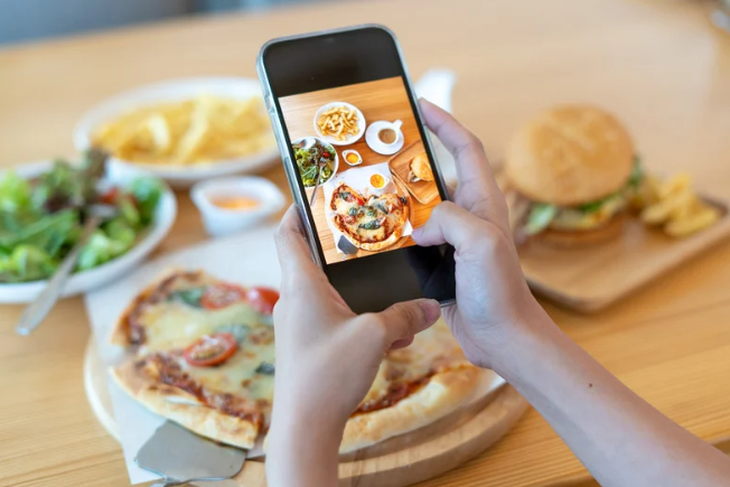
Just need a smartphone, raise the camera and you will have a beautiful photo - Photo: AI
With the development of technology, capturing every moment of life has become easier than ever. According to data from Photutorial, in 2023, the world recorded about 5.3 trillion photos taken, or more than 61,000 photos per second.
Psychologist Fabian Hutmacher (University of Würzburg, Germany) commented: "We are storing more personal data than any previous generation. The question is whether that changes the way we remember our lives?".
How digital images change the way the brain remembers
Autobiographical memory, the ability to remember events in one’s life, is fundamental to one’s identity. But according to neurological research, the brain does not operate memory like a video camera.
Memory relies on the coordination between the hippocampus (which encodes new experiences) and the prefrontal cortex (which organizes experiences into stories). These two regions are only effective when we are focused and emotional, which is often disrupted when we are too focused on taking photos.
“Memories are not absolute truths, but they reflect the way we tell stories about ourselves,” says Julia Soares, PhD, a psychologist at Mississippi State University.
On the positive side, images can act as a “key” to recall forgotten memories or emotions. There are emotions that we have forgotten, but when we look at photos, everything comes flooding back. We can also remember ourselves just by observing the changes in photos over time.
However, the role of photos is not limited to recall. In the digital age, memory formation is no longer just the brain's job, but also the result of the interaction between the brain and devices such as smartphones. When we "entrust" memory to machines, personal memory becomes a hybrid system of internal and external.
Taking too many photos can make us... remember worse.

We take pictures of everything, everywhere: beautiful skies, newly bloomed flowers, delicious food, new friends, even happily holding up our phones to take a few photos for nothing - Photo: AI
A 2013 study by Professor Linda Henkel found that taking photos can reduce the ability to remember events, if the photographer "relies" completely on the camera to retain information. Conversely, if the photographer focuses and feels while taking photos, memory improves.
“If you go to a live concert and shoot video for 90 minutes to find the perfect angle, you’ll enjoy it less and remember it less. But if you take a photo of a moment because it’s your favorite song, you’ll remember it more clearly,” says psychologist Hutmacher.
The reality is that most people don't review their photos regularly. Photos become cluttered, cluttered, and eventually forgotten.
Are we "editing" our memories?
Forgetting is a natural part of memory. But in a digital world, choosing what to capture, what to keep, and what to delete is profoundly affecting how we remember and even how we define the past.
A 2023 scientific study found that when people share photos on social media, they recall the experience more clearly. Conversely, when they delete photos, their memories become less vivid. Some people even intentionally delete photos of exes or unpleasant memories as a way to “forget.”
“People are trying to control their memories through controlling images. Photos become the ‘mountains of memory’, and events without photos drift into the ‘valley of forgetting’. The question is: to what extent does this affect us?”, Soares said.
From a scientific perspective, taking photos isn’t a bad thing. Photos are still a great tool to help us remember, as long as we use them intentionally. When we choose to capture the moments that really matter, take the time to live them fully in front of the camera, and occasionally look back at those images, we not only preserve our memories, but also help them live longer.
In an age where everything can be digitized, stored, and shared instantly, it’s not just about what we record, but what we want to remember and why. Memories aren’t just stored on our phones, they’re actually living in our minds.
Source: https://tuoitre.vn/chup-anh-qua-nhieu-se-bi-giam-tri-nho-20250618205623776.htm


























![[Photo] Nghe An: Provincial Road 543D seriously eroded due to floods](https://vphoto.vietnam.vn/thumb/1200x675/vietnam/resource/IMAGE/2025/8/5/5759d3837c26428799f6d929fa274493)


![[Photo] Discover the "wonder" under the sea of Gia Lai](https://vphoto.vietnam.vn/thumb/1200x675/vietnam/resource/IMAGE/2025/8/6/befd4a58bb1245419e86ebe353525f97)































































Comment (0)